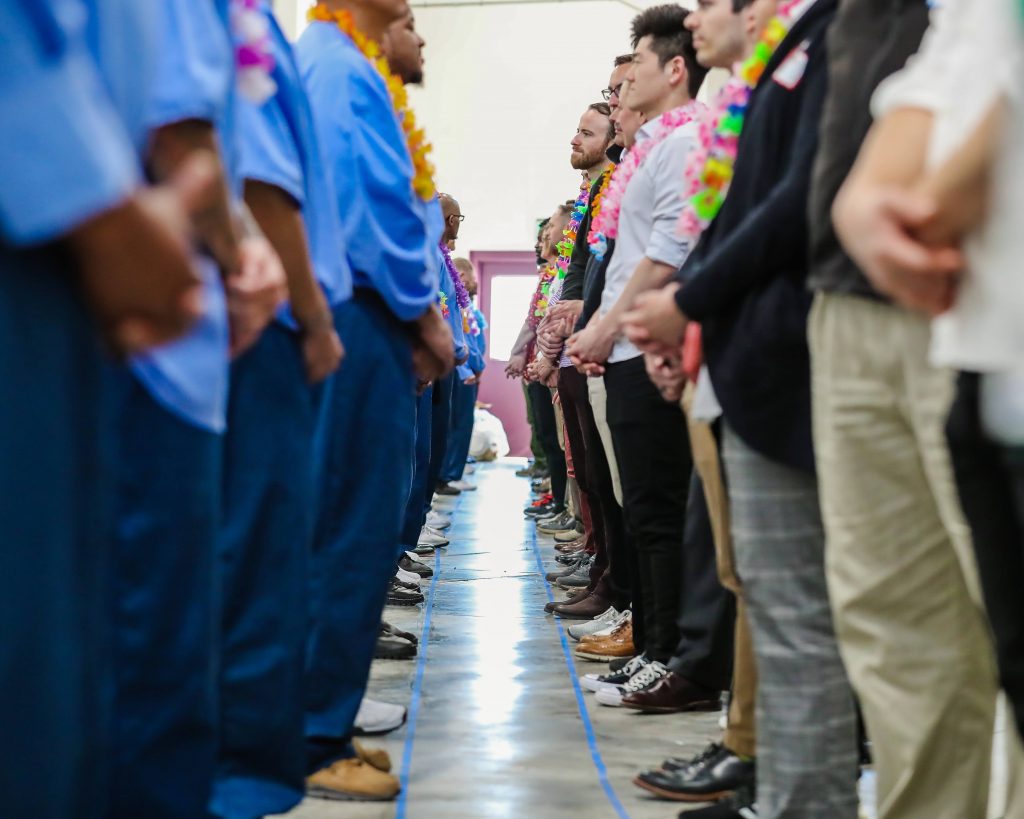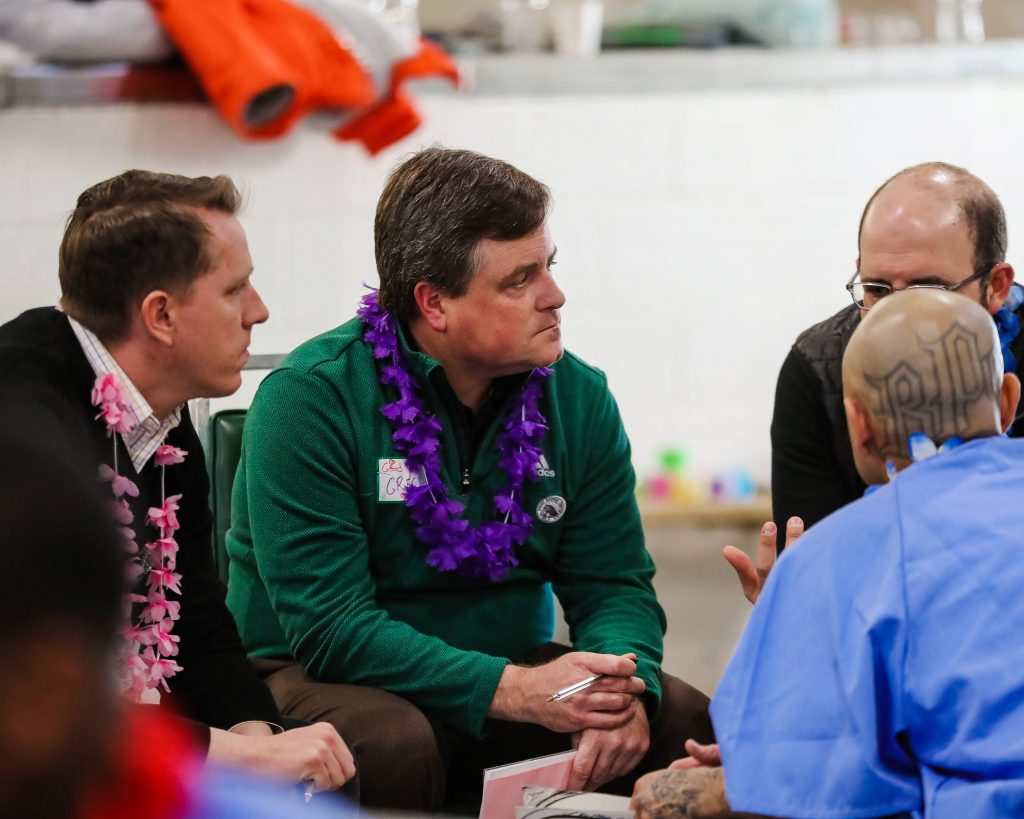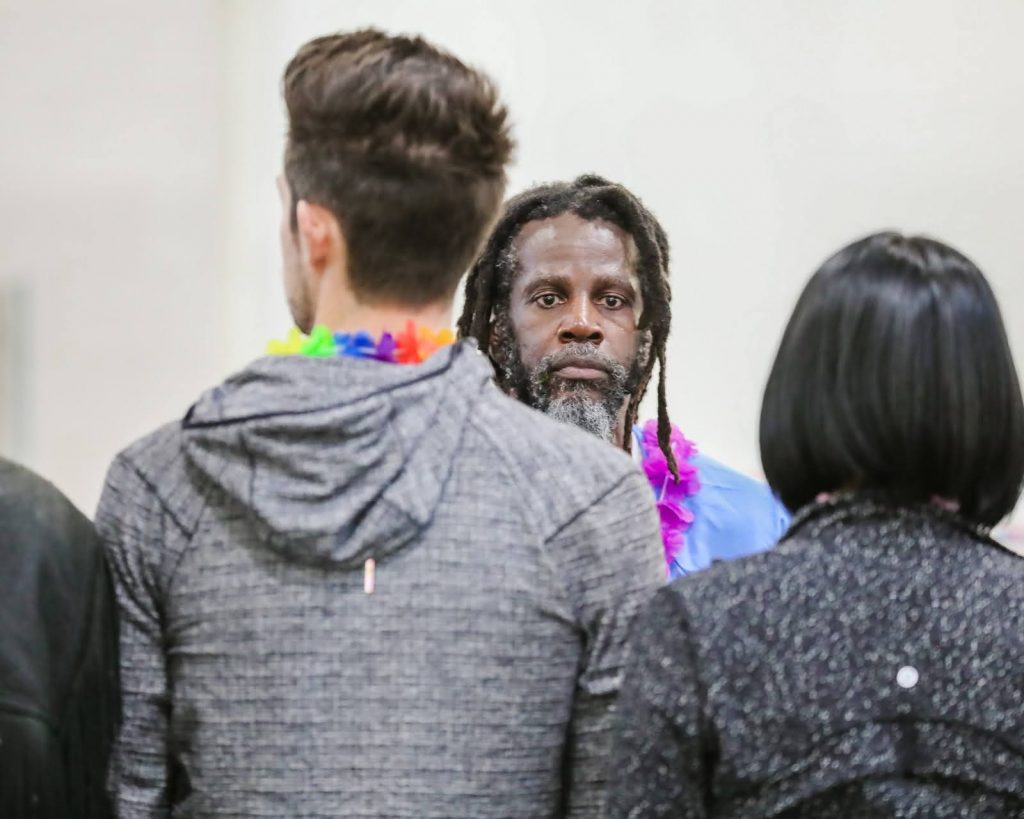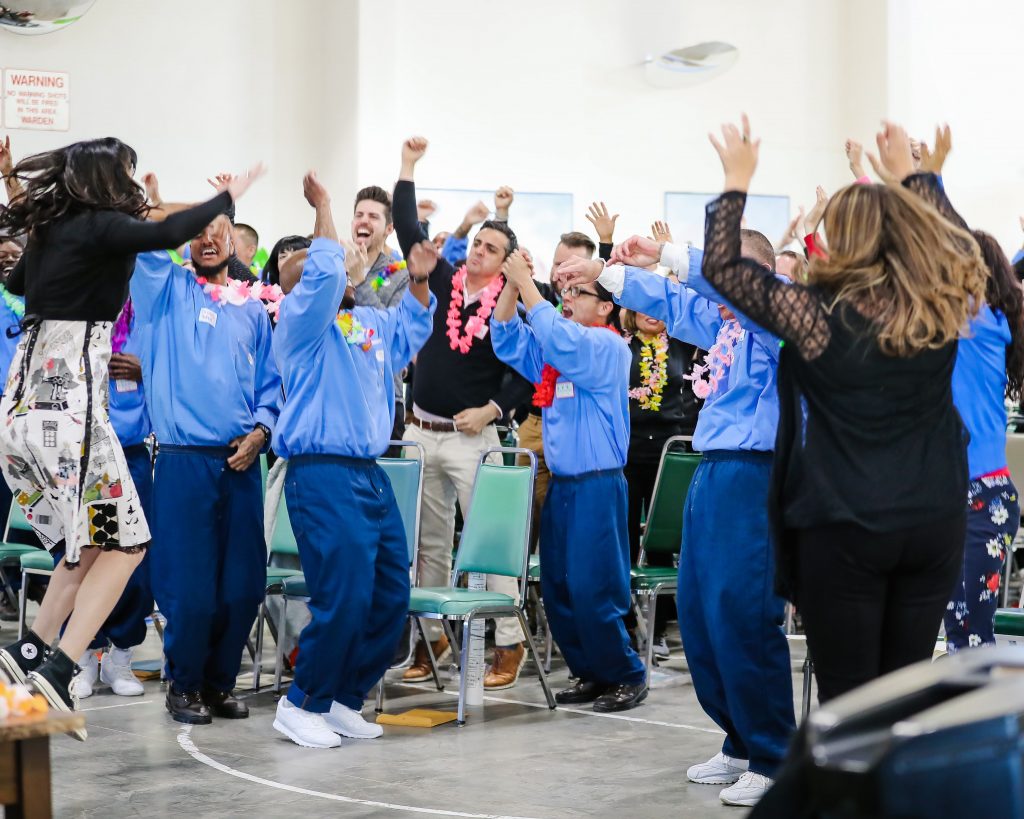Imagine if you were known for the worst thing you’ve ever done.
Normally I have a half-decent idea on how to capture and share an experience. But walking through the prison yard on our way back to the creature comfort-laden world we’re used to, the sole topic was our inability to properly communicate the preceding eight hours. The opening line to this post, which also opened our day, best framed it.
It was long instilled in me the understanding that much of how we end up in the world comes from how we came into the world – our parents and their defining characteristics and our nationality. I do not want to dismiss the hard work of myself or the many people along the way who have led me to all the things I am so grateful for today. That aside, I know that many of these doors would never have been opened had I been born in a different country – or a different income class – or a different skin color.

On the one year anniversary of Compass’ acquiring Contactually, I was on a plane bound for Reno, to spend a day at High Desert State Prison. I’ve had numerous colleagues attend a Hustle 2.0 event previously, so jumped at the opportunity. Hustle 2.0’s mission is to help improve the likelihood that incarcerated people – Mavericks – leave prison, and never return. Without going too much into specifics of the program or what the agenda of our day together was, half of the curriculum provides Mavericks the professional development to pass their parole board hearing, hone and present their resume/work experience, or start a business. I had the opportunity to listen to a number of business plans and coach them on how to ensure their business gets off the ground (one of the successful alumni).

The other half of the program, which was interwoven throughout the day, tackled head on the missing component of most of our lives, and is only now being brought to light in the professional world. Through affirmations, addressing self-limiting beliefs, and a superhuman amount of vulnerability, they – and we – tackled our collective emotional intelligence. While society permanently labels them as criminals (and there was no attempt at dismissing the fact that their actions hurt people), Hustle 2.0 changes the external and internal narrative – you are not your past. The lessons here were not just relevant to the currently incarcerated – it applied to us too.

We are all flawed people who are trying to do our best in the world, making many mistakes along the way. For some, it may mean a failed relationship or business. For others, it may mean being arrested and thrown in jail – as early as eight years old. This day unquestionably brought into focus the societal differences that took us down our different paths – their life stories I hope I will never forget. Nevertheless, we all deserve – and have the opportunity, though an uphill battle mentally and emotionally – to have a second chance.

I’m intentionally withholding the exact details of the day, but if you’re considering attending a Hustle 2.0 program, I’d advocate for you to do it (volunteers are not limited to entrepreneurs) and happy to answer any questions.
If you’re interested in learning more, listen to Tim Ferris’ interview of the founder, or read Yanik or Jordan’s account as well.
 Here for the first time?
Here for the first time?